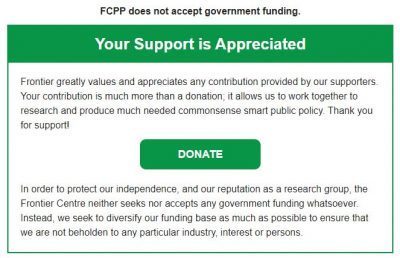Talks about Western separation and the release of the well-timed Buffalo Declaration should be leveraged by marginalized northern regions in the West to place their issues front and centre in the national conversation.
Within the wider discourse of Western alienation exists the reality of northern alienation that has existed for quite a while without finding an appropriate vehicle. For example, northern British Columbia has long felt marginalized within British Columbia politics and ignored by provincial politicians. After all, only about seven percent of B.C.’s population resides in the northern half.
The province tends to prioritize the southern half of the province when it makes large infrastructure investments. Despite automation and changing technologies, the northern B.C. economy is still largely dominated by resource industries. Forestry, mining, and the energy sector still serve as a backbone for the rural northern economy, despite economic diversification efforts on the part of northern rural municipalities.
 In terms of economic structure and attitude, northern B.C. residents are more like northern Albertans. People in Kitimat feel alienated from the latte-drinking urbanites in B.C.’s capital city of Victoria. Granted, however, that the B.C. Premier has stood up for major projects that would benefit the north, such as the Coastal GasLink project. However, this doesn’t change a basic alienation that the north feels from the core of political power in the province.
In terms of economic structure and attitude, northern B.C. residents are more like northern Albertans. People in Kitimat feel alienated from the latte-drinking urbanites in B.C.’s capital city of Victoria. Granted, however, that the B.C. Premier has stood up for major projects that would benefit the north, such as the Coastal GasLink project. However, this doesn’t change a basic alienation that the north feels from the core of political power in the province.
A similar situation has occurred in northwestern Ontario where large communities such as Kenora have felt ongoing neglect from a distant and unresponsive government in Queen’s Park and have seriously discussed joining Manitoba. Many felt that on issues such as the forest economy and on healthcare, Ontario seriously neglected them. At one point, a disgruntled community in southwestern Manitoba wanted to join Saskatchewan.
This might be the perfect time for northern British Columbians to raise the stakes in the discussion by raising the “S” word. The real possibility of separation might be what the out-of-touch B.C. provincial government needs to prioritize northern concerns.
In November of last year, the Frontier Centre for Public Policy released a major policy paper that discussed redrawing the provincial boundaries of Alberta and Saskatchewan to provide tidewater access to both provinces.
Residents of Northern B.C. – both from Indigenous and non-Indigenous communities – should consider and perhaps leverage such proposals, such as joining Alberta. First Nations in northern British Columba might have more success in forwarding their issues of self-government and nation-to-nation dialogue, especially with the focus on reconciliation.
If residents of northern B.C. entertained the possibility of joining Alberta, Alberta would need to extend an offer to northern British Columbia residents explaining the benefits of joining Alberta. Northern B.C. would need to inform the Alberta government of the problems they are facing which propelled them to leave British Columbia. Alberta could then address those problems and offer residents of Northern B.C. a better deal.
During the Quebec secession crisis, there were some Quebec Indigenous leaders who did not reject the sovereigntist cause completely, instead, asking the leaders of the Quebec sovereignty movement what they would offer them. Being pragmatic, they realized that if they could not stop or fight the secession vote, they would settle for a better deal from a sovereign Quebec government than the one they had with a united Canada. Both Indigenous and non-Indigenous communities in northern B.C. should adopt a similar attitude and posture.
A very attractive element of northern B.C. joining Alberta would be the promise of permanent coastal access for Alberta’s energy sector, which would greatly benefit many communities and First Nations of northern B.C.
Alternatively, rocking the political boat with talk of redrawing provincial boundaries could be enough to finally awaken the British Columbia government to the seriousness of northern alienation in their province. This could finally force the province to adopt a serious plan for the north, that includes investment in necessary infrastructure.
Mayors in northern B.C. communities should be able to get the premier on the phone and receive attention on pressing matters. Industries such as forestry, mining, and energy should receive as much attention as issues that concern Metro Vancouver and among suburbanites in the Lower Mainland.
Raising the spectre of redrawn borders might just be enough to force the province to deal with its Northern Alienation problems.
Joseph Quesnel is a research associate with the Frontier Centre for Public Policy. www.fcpp.org



